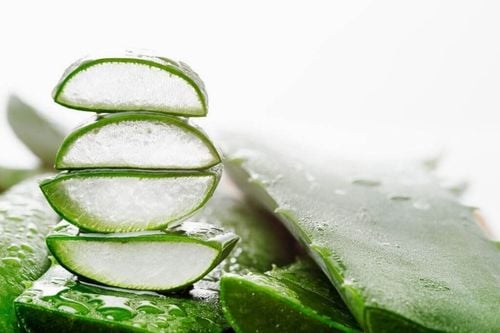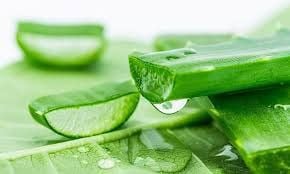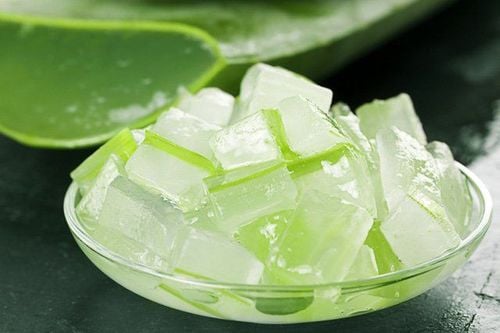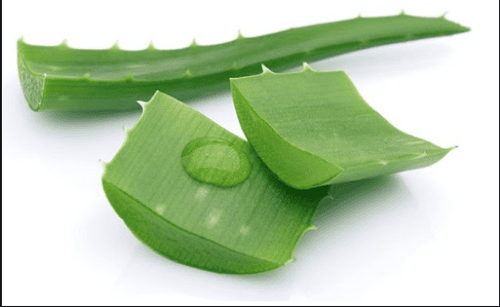This is an automatically translated article.
Aloe vera, also known as aloe vera, has cool properties and is one of the ingredients used for facial care and health-promoting drinks. Here are other benefits that the aloe vera plant gives us.
1. What is aloe vera used for?
1.1 Keep products fresher longer Aloe vera gel can help keep fruits and vegetables fresh and can eliminate the presence of dangerous chemicals used to extend product shelf life.
1.2 Oral Cleanse In a 2014 study published in the Ethiopian Journal of Health Sciences, researchers found aloe vera extract to be a safe and effective alternative to juices. Mouthwash is made from chemicals.
A 2017 study found that people who used an aloe vera toothpaste experienced a significant improvement in their oral health. Aloe vera toothpaste was found to be more effective than triclosan toothpaste in reducing candida levels, plaque, and gingivitis. People who used aloe vera toothpaste reported better oral health without any side effects.
1.3 Lowering Blood Sugar According to a study in the International Journal of Phytotherapy and Phytopharmacy: Drinking two tablespoons of aloe vera juice daily can lower blood sugar in people with type 2 diabetes. However, people with diabetes, taking glucose-lowering drugs should be cautious when using aloe vera. Because juice along with diabetes medications can lower glucose levels to dangerous levels.
1.4 Improves digestive health, is a natural laxative Consuming aloe vera can benefit the digestive tract and help soothe and cure stomach ailments, including irritable bowel syndrome ( IBS). Additionally, aloe vera can help inhibit the growth of H. pylori bacteria, which are found in the digestive tract and can lead to ulcers.
Aloe vera is considered a natural laxative. A team of Nigerian scientists conducted a study on rats and found that gel made from fresh aloe vera can relieve constipation.

Nha đam giúp nhuận tràng ở người bệnh táo bón
1.6 Care and improvement of skin problems You can use aloe vera to keep the skin brighter and retain the moisture of the skin. Using fresh aloe vera on the face can help clear up acne.
1.7 Heal Burns Due to its soothing, moisturizing, and cooling properties, aloe vera is often used to treat burns. If you have a sunburn or other minor burn, apply aloe vera several times a day to the area. In case of severe burns, seek medical help before applying aloe vera.
1.8 May Help Fight Breast Cancer A new study published in the journal Evidence-Compuityary and Alternative Medicine looked at the therapeutic properties of aloe emodin, a compound in the leaves of the aloe vera plant. The team suggests that the succulent plants have the potential to slow the growth of breast cancer. However, more research is needed to further advance this theory.
1.9 Relieve anal fissures If anal fissures are present, apply aloe vera cream to the affected area several times a day, it can help promote healing. A 2014 study found that using a cream containing powdered aloe vera juice was effective in treating chronic anal fissures. People used aloe vera cream three times a day for six weeks and found pain relief and decreased bleeding during bowel movements and wound healing.

Nha đam giúp làm giảm vết nứt hậu môn
2. Is aloe vera (aloe vera) safe?
Aloe vera is safe for most people to use directly for skin care problems.
However, the following should be considered when using aloe vera
Never use aloe vera with any severe cuts or burns. Pay attention to how your body reacts to aloe and discontinue use if any adverse reactions occur. Do not use aloe vera if you are allergic to garlic, onions, or tulips. Avoid taking aloe vera within two weeks of any scheduled surgery. Women who are pregnant or breastfeeding, and children under 12 years of age, should avoid using aloe vera. Carefully follow the dosage information when taking aloe vera gel. Use for a limited time only. After a few weeks of use, stop for at least a week. Look for aloe products from reputable brands to ensure safety and quality. The laxative effect of aloe vera has the potential to cause diarrhea and abdominal cramps. Do not use aloe vera while on medication, because aloe vera inhibits the absorption of oral medications and reduces their effectiveness.
Also, don't use aloe vera if you have the following conditions:
Have hemorrhoids Have kidney problems Kidney disorders Have heart problems Crohn's disease Ulcerative colitis Intestinal obstruction Diabetes

Người mắc bệnh tiểu đường không nên dùng nha đam
Kidney problems Blood in urine Low potassium Muscle weakness Diarrhea Nausea or stomach pain Electrolyte imbalance Talk to your doctor before use aloe vera if you are taking the following drugs, as aloe vera may interact with them:
Diuretics Herbal and Supplements Corticosteroid Digoxin (Lanoxin) Warfarin (Coumadin, Jantoven) Sevoflurane (Ultane) Stimulant Laxative Diabetes Drugs Anticoagulants There are many ways to use aloe vera. Be sure to consult your doctor if you plan to use aloe vera as a medicine especially while taking another medication.
Please dial HOTLINE for more information or register for an appointment HERE. Download MyVinmec app to make appointments faster and to manage your bookings easily.
Reference source: healthline.comSEE MORE
Aloe vera for weight loss: Benefits and side effects Can you eat aloe vera? Aloe vera: Uses, dosage, side effects













